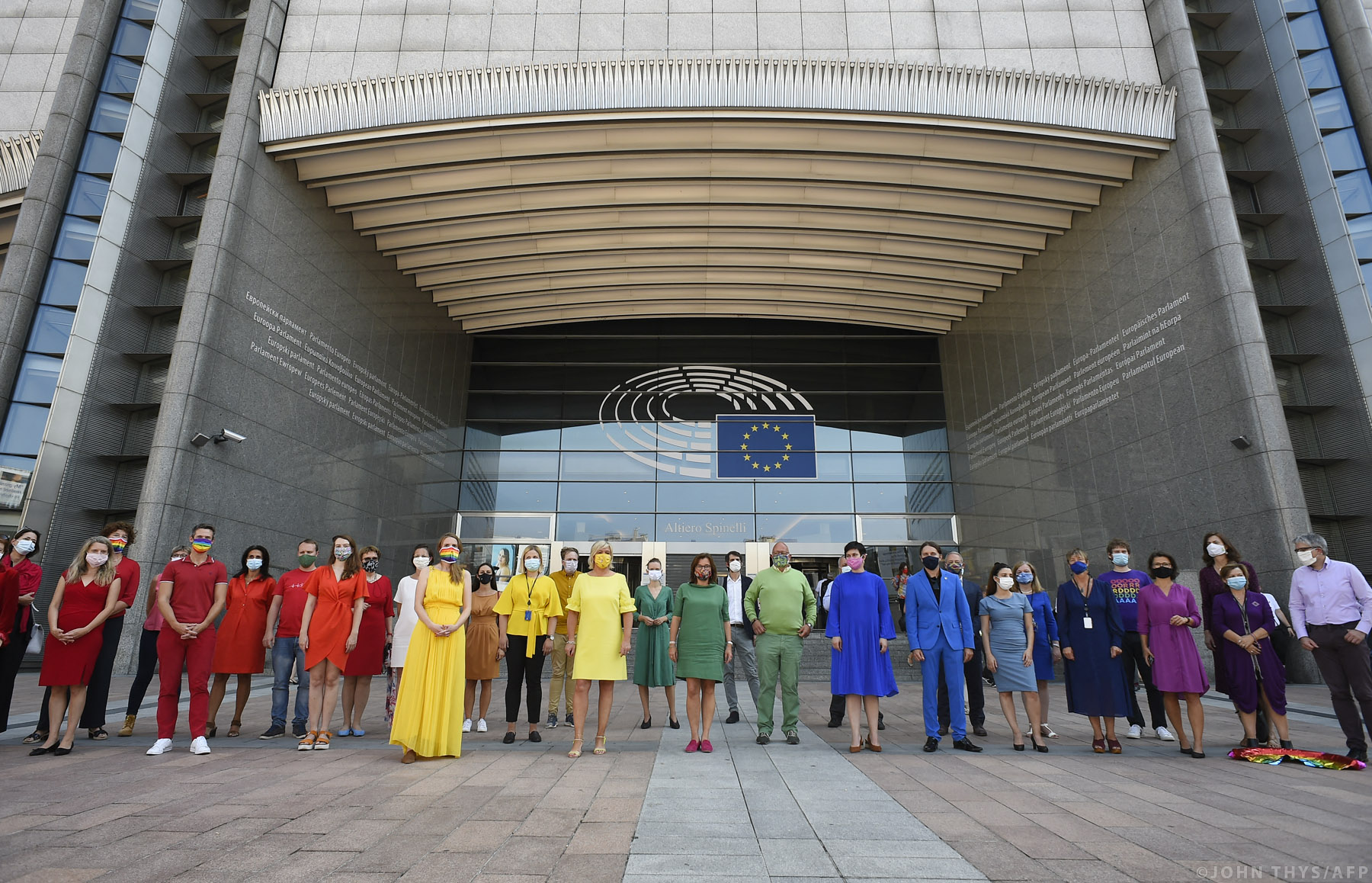Two years after the first Polish local authority declared itself an ‘‘LGBTIQ-free zone’’, Parliament declared the EU to be an ‘‘LGBTIQ Freedom Zone’’ in a resolution adopted by 492 votes in favour, 141 against and 46 abstentions.
Since March 2019, more than 100 Polish regions, counties and municipalities have adopted resolutions declaring themselves to be free from LGBTIQ “ideology”. According to these resolutions, local governments should refrain from encouraging tolerance towards LGBTIQ people and withdraw financial assistance from organisations promoting non-discrimination and equality.
Increased discrimination and attacks against LGBTIQ people in Poland
MEPs also highlight that these ‘‘LGBTIQ-free zones’’ are part of a broader context in which the LGBTIQ community in Poland is subject to increased discrimination and attacks, notably growing hate speech from public authorities, elected officials (including the current President), and pro-government media. They also deplore the arrests of LGBTIQ rights activists, and the attacks and bans on Pride marches.
Although the Commission rejected applications for EU funding under its town-twinning programme from Polish towns that adopted such resolutions, MEPs urge the institution to go further. The Commission should use all tools, they say, including infringement procedures, Article 7 of the Treaty on EU, as well as the recently adopted regulation on protecting the EU’s budget, in order to address violations of the fundamental rights of LGBTIQ people in the EU.
Deteriorating situation in Hungary
The EP resolution also mentions the deteriorating situation in Hungary. In November 2020, the Hungarian town of Nagykáta adopted a resolution banning the ‘‘dissemination and promotion of LGBTIQ propaganda’’. One month later, the national Parliament adopted constitutional amendments that further restrict the rights of LGBTIQ people, that do not take the existence of transgender and non-binary persons into account and limit their right to a family life.
‘‘LGBTIQ persons everywhere in the EU should enjoy the freedom to live and publicly show their sexual orientation and gender identity without fear of intolerance, discrimination or persecution, and authorities at all levels of governance across the EU should protect and promote equality and the fundamental rights of all, including LGBTIQ persons’’, MEPs conclude.






